Johannes Paul Raether: Transformellae ikeae – Constructing The Bio-Techno ReproTribe
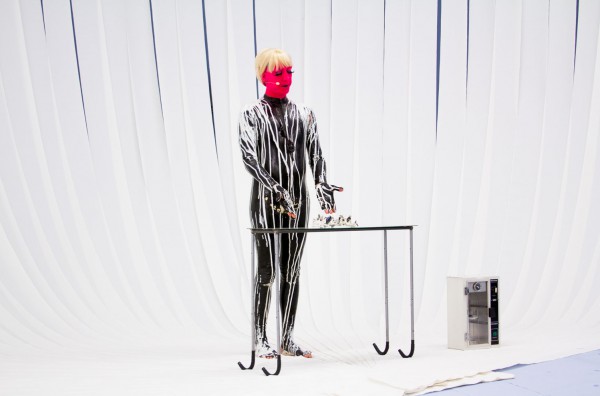
FertilityCave 1.0.6 - Mirror Cryo Kommunisat, 2015, Photo: Smina Bluth
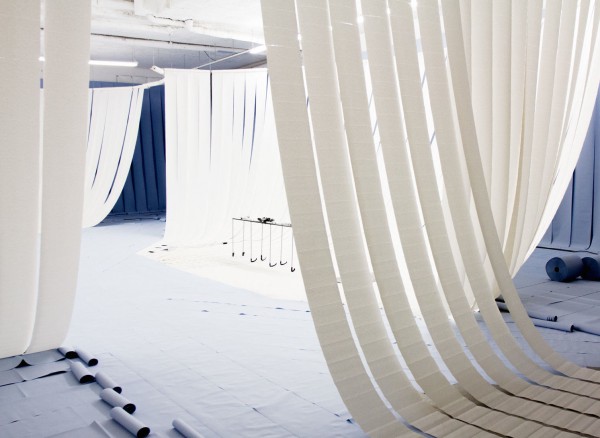
FertilityCave 1.0.6, 2015, Photo: Smina Bluth
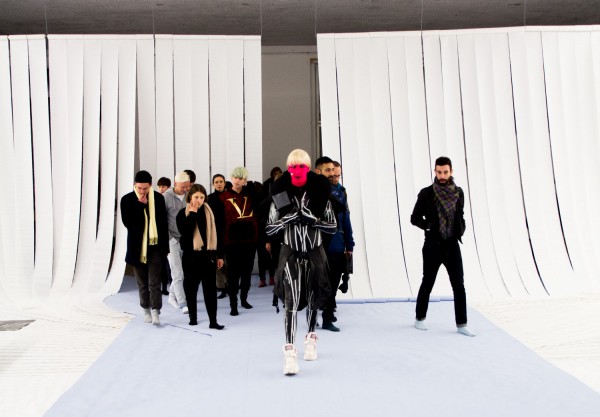
FertilityCave 1.0.6 - Mirror Cryo Kommunisat, 2015, Photo: Smina Bluth
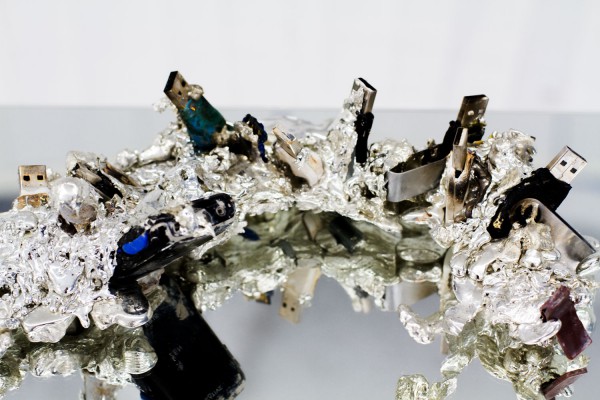
FertilityCave 1.0.6 - Kommunisat, 2015, Photo: Smina Bluth
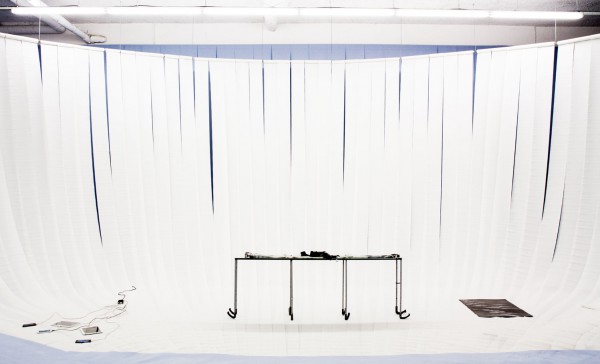
FertilityCave 1.0.6, 2015, Photo: Smina Bluth
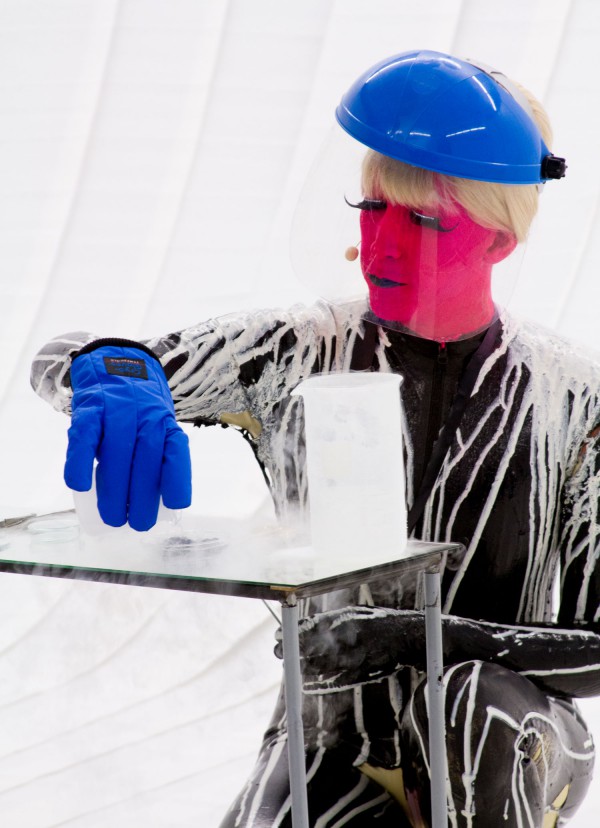
FertilityCave 1.0.6 - Mirror Cryo Kommunisat, 2015, Photo: Smina Bluth
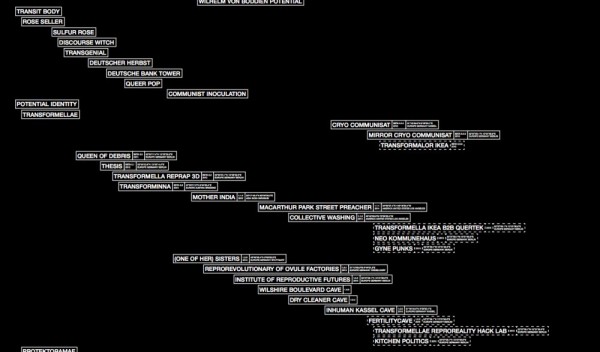
Johannes Paul Raether, Systema identikturae, 2015, Detail, Design: Elsa Westreicher
Exhibition and ReproReality Hack Lab curated by Suza Husse
15 October, 18 h Opening
„’Reproduction’ – or less inaccurately, the generation of novel forms – need not be imagined in the stodgy bipolar terms of hominids.” Donna Haraway
On 15 October District will open Transformellae ikeae – Constructing The Bio-Techno ReproTribe, a project by the artist Johannes Paul Raether. At the center of the exhibition, event, and performances is the character Transformella, Queen of Debris and Surrogate Mother of the Institute for Reproductive Futures. She is one of the multiple fictive identities and hysterical-subversive drag characters that Systema identitekturae has cyclically developed since 2009. Raether’s performance system assembles embodiments, materializations, and visualizations of social paradoxes and catastrophic political actualities.
As a research avatar, Transformella is dedicated to the assertion of the emancipatory potential of biomedical innovation in the field of assisted reproductive technologies. After five years of rambling and appearances in Europe, USA, and India, she’s now returned to Berlin to conclude her cycle of becoming and to issue a version of herself inspired by opensource software (Forking Version 0.0.1 until 2.0.1).
The question of real and potential possibilities of communal procreation and parenthood remains the starting point for establishing the techno-organic myth of the species Transformellae at District. For the queer-futuristic fathoming of such scenarios in the age of globalized-industrial production of human offspring, the character takes on the practical construction of „we“ – the potential political subject that to date had only been suggested in her repro-communal manifesto.
Transformella begins her residency with a transition ritual, the production of the Mirror Cryo-Kommunisat in the clinical-seeming FertilityCave 1.0.5. It accommodates the performative appearances of the versions of Transformellae, as well as a series of materializations of the past cycle and the convocation of the ReproReality Hack Lab.
In this series of gatherings, Transformella opens out to collective knowledge production, critique, and practical attempts at appropriation. This includes the appropriation techniques of queer-feminist biotechnology hacks (Gynepunks), a b2b Meeting about the emerging market of “Living Strategy Design” (Ashkan Sepahvand), a political critique of reproductive labor (Felicita Reuschling / Kitchen Politics) and practical design work on a neo-communal building (Robert Burghardt & Anna Heilgemeir).
In December, the heretofore collectively developed modes of a new ReproReality will form the forked, new drag avatar Transformalor. Her mission will be to exemplarily implement the resulting repro-communal tribe, whether fiction or potential reality, in the normality of a factory for life prostheses and workspaces in the neighborhood of District.
Cryo-Kommunisat
in FruchtbarkeitsCave 1.0.5
15 October 2015
Opening 18 h
Performance 20 h
ReproReality Hack Lab
Gatherings hosted by Transformella ikeae at the FertilityCave 1.0.5
WE ARE IN A MEETING
A Public Consultation between Ashkan Sepahvand, Quertek Incorporated Associate, and Transformella ikeae
14 November 2015, 12–17 h
in English
The meeting aims to integrate expert knowledge on Reproductive Futures into the Agenda on Living Environments, a 5-year corporate strategy developed by Quertek to expand its Übermaterial® Supplements and Services into the emerging market of Living Strategy Design. The fictional format of a “business consultation” will be used to explore the creative logic of capitalist realism and how performative speculation can hack the future. Based on a re-reading of Shulamith Firestone’s 1970 text The Two Modes of Cultural History, where she argues for an “Anticultural Revolution” in the future, the consultation will reflect on practices that accelerate trans-formation.
ReproReal-Estate HackLab
A planning workshop for neo-communal architectures
Robert Burghardt & Anna Heilgemeir, Architects and City Activists
15 November 2015, 11–19 h
in German
How can we reformulate the spatial contexts of social (reproduction) relationships? Looking at the layout of historic communes – like the constructivists’ commune houses, the forms of communal sustenance or the communes that emerged in the 1968 movements – and todays models of shared living, the planning workshop initiates collective projections toward a queerfuturist commune architecture for the Transformellae-tribe. As a material principle which facilitates and undergrids modes of relating, the architectural ground plan will be taken as a starting point for the shared hacking of architectures, city areas, islands or territories.
Reproduction Technology, Reproductive Labor, and Family in the 21st Century
A dialogical workshop in two parts
Kitchen Politics, represented by Felicita Reuschling, Curator and Author
21 November 2015, 14–18 h
In German
In conversation with Transformella ikeae the collective invites the participants on a journey through the history and presence of techno-utopias. Feminist visions of life forms and reproduction technologies from texts by Shulamith Firestone, Marge Piercy and Donna Haraway set the point of departure. The second part of the workshop is dedicated to a discussion of biotechnologies in the context of neoliberalism based on the theses formulated by Kitchen Politics in their current book Sie nennen es Leben, Wir nennen es Arbeit. Biotechnologie, Reproduktion und Familie im 21. Jahrhundert (‚They Call It Life. We Call It Labor. Biotechnoloy, Reproduction And Family in the 21st Century,’ Melinda Cooper, Catherine Waldby, Felicita Reuschling, Susanne Schultz, 2015).
Open Lab Gynepunk V.04
Open Science Friction Workshop
Gynepunks, represented by Paula Pin and Beka, Artists, Researcher and Activists (Calafou, Barcelona)
22 November 2015, 12–19 h
in English
The collective Gynepunks works on the development of DIY-DIT equipment based on open technologies for body analytical experiments and radical forms of transdisciplinary collaboration. In the Open Lab the participants will build DIY microscopes and 3D speculums to probe the bio hacking applications developed by the Gynepunks for the queerfuturist appropriation of reproduction technology. Based on their transhackfeminist practices and theories, the workshop opens a space for speculation at the crossings of biointerfaces, cybernetics, queer science, post-human discourses and techno-spiritual rituals.
Please register for the ReproReality Hack Lab gatherings and workshops until two days before they happen via post@district-berlin.com.
For the Open Lab Gynepunk V.04 a fee of 15 EURO is required to cover the costs of materials for the construction of the DIY microscopes which will remain in the hands of the participants after the workshop.
Transformalor Kristallisation
Performance-Intervention
12 December 2015, 13 h
For maximum 25 participants, please register via post@district-berlin.com until two days before the performance.
FruchtbarkeitsCave 1.0.5
Exhibition
15 October – 13 December 2015
Tuesday to Saturday, 14–18 h
Transformellae ikeae – Constructing The Bio-Techno ReproTribe is a project of District, made possible through the friendly support of the Berlin Senat, Department of Cultural Affairs.
Thanks to the partners: Malzfabrik, Nordvlies and media partners: Jungle World and Missy Magazin.
Team
Sabrina Dal Vera and Isa Hönle, curatorial assistance; Lisa Erb, artistic and academic assistance; Janine Halka, coordination artistic education; Suza Husse, artistic direction; Andrea Caroline Keppler, project management; Johannes Paul Raether, artist; Marc Schamuthe and Sebastian Gündel, technical support, Frank Sippel, chief executive, Elsa Westreicher, graphic design







